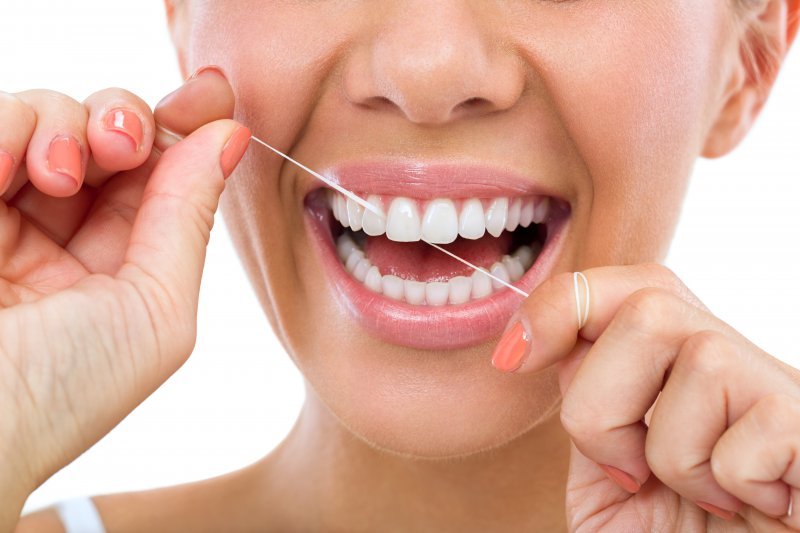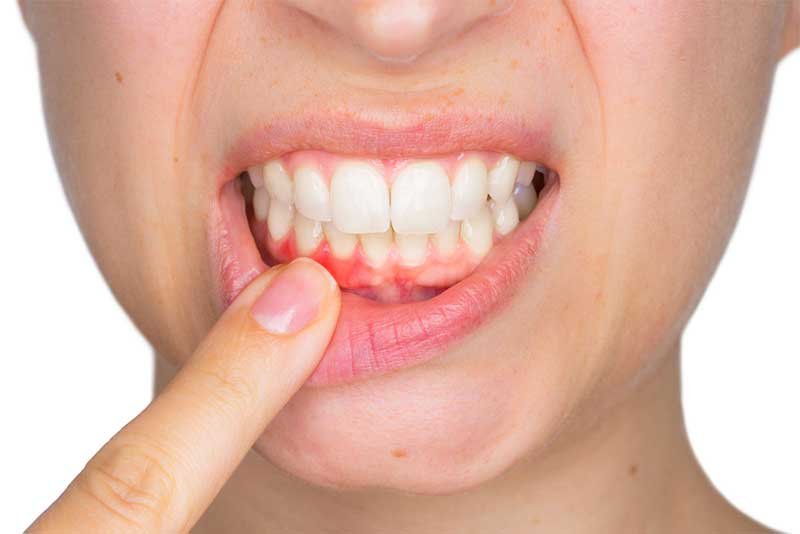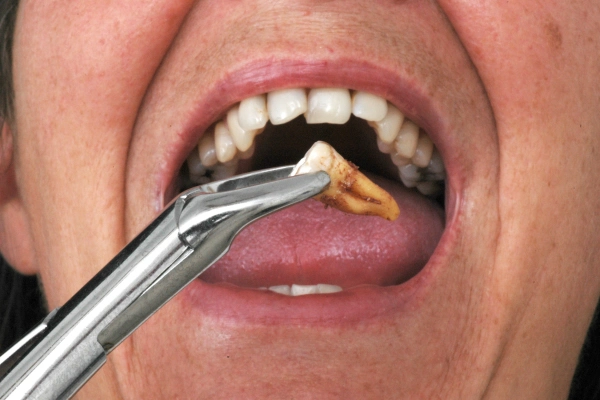Gum health is an integral part of oral hygiene that requires attention and care. Maintaining healthy gums not only contributes to good oral health but also has a significant impact on overall health. Gum disease, if left untreated, can lead to serious complications like tooth loss, bone damage, and even heart disease. Therefore, preventing gum disease should be a priority for everyone. This article aims to inform readers about preventive measures for gum line. These measures include regular brushing and flossing, choosing the right tools for oral hygiene, making healthy lifestyle choices, visiting the dentist regularly, being aware of the signs of gum disease, taking early action when necessary and maintaining good overall health. By following these steps consistently and diligently, individuals can reduce their risk of developing gum disease and ensure that their gums remain healthy throughout their lifetime.
Understand the Importance of Gum Health
Maintaining good oral hygiene is essential for overall wellness, and the health of one’s gums plays a crucial role in achieving this goal. Understanding gum disease is imperative in comprehending the significance of gum health. Gum disease, also known as periodontal disease, affects the tissues surrounding teeth and can lead to tooth loss if left untreated. However, it is not just about losing teeth; studies have shown that there is a correlation between gum health and chronic illness such as heart disease and diabetes.
Gum health should be considered an integral part of one’s overall well-being. It involves taking care of the gums through regular brushing, flossing, and dental check-ups. When we neglect our oral hygiene, harmful bacteria build up in the mouth causing inflammation which leads to gingivitis – an early stage of gum disease. If left untreated, gingivitis can progress into periodontitis – a more severe form of gum disease that results in bone loss around teeth.
Understanding the importance of gum health, it is critical to take preventive measures to maintain optimal oral hygiene. Practice good oral hygiene by brushing at least twice a day using fluoride toothpaste and flossing daily to remove food particles between teeth. Schedule regular dental check-ups with your dentist or periodontist every six months to detect any signs of gum problems early on before they escalate into something serious like periodontitis. By practicing these simple steps daily, you can prevent potential long-term consequences associated with poor gum health while keeping your smile bright and healthy for years to come!

Common Gum Line Problems for gum health encompass issues like gingivitis, where inflammation occurs, and periodontitis, which can lead to gum recession and tooth loss. Addressing these problems promptly is crucial to preserving optimal oral well-being.
https://gumlinehealer.com/importance-of-gum-line-health/
Practice Good Oral Hygiene
Good oral hygiene is crucial in maintaining optimal gum health. Brushing your teeth twice a day, flossing daily, and using mouthwash are key components of a successful oral care routine. These practices help remove plaque and bacteria from the teeth and gums, preventing cavities, gum disease, and other dental problems.
Brush Your Teeth Twice a Day
Regularly brushing your teeth twice a day is crucial for maintaining proper oral hygiene and reducing the risk of developing dental problems. Incorporating this habit into your daily oral routine can help prevent plaque buildup, which can lead to gum disease and tooth decay. Here are some toothbrush techniques that you should keep in mind when brushing your teeth:
- Use a soft-bristled brush: Hard bristles can damage your gums and enamel, so it’s best to use a soft-bristled brush.
- Brush at a 45-degree angle: This helps clean the area where your teeth meet your gums.
- Brush for two minutes: Make sure to brush all surfaces of your teeth for at least two minutes.
- Don’t forget to brush your tongue: Bacteria can accumulate on your tongue, leading to bad breath.
Flossing daily is another important step in maintaining optimal gum line health.
Floss Daily
Daily flossing is a recommended practice for maintaining thorough oral hygiene. While brushing your teeth can remove food particles and plaque on the surface of your teeth, it cannot reach the tight spaces between them. Flossing helps to remove bacteria and debris from these hard-to-reach areas, preventing gum disease and tooth decay. In addition, flossing also helps to stimulate blood flow in your gums, which improves overall gum health.
To get the most benefits out of flossing, it’s important to use proper technique. First, take about 18 inches of floss and wrap it around your middle fingers until you have about two inches left between them. Hold the remaining floss tightly with your index fingers and thumbs. Gently glide the floss up and down between each tooth using a back-and-forth motion while also curving it around each tooth in a C-shape. Be sure to use a clean section of floss for each tooth so that you’re not spreading bacteria from one spot to another.
Flossing is just one part of an effective oral hygiene routine. After completing this step, you can move on to using mouthwash for added protection against cavities and fresh breath.

Use Mouthwash
Using mouthwash after flossing creates a protective barrier and leaves your mouth feeling refreshed. The benefits of using mouthwash extend beyond fresh breath, as it can help prevent gum disease by reducing plaque and bacteria in the mouth. Different types of mouthwash are available such as fluoride-based mouthwashes that can strengthen teeth and reduce risk of cavities, antiseptic-based ones that kill bacteria, and natural herbal ones that are free from chemicals.
Choose the right type of mouthwash for your specific dental needs, as some may contain alcohol which can be harsh on sensitive gums or cause dryness. Consult with your dentist to determine which type is best suited for you. In addition to regular brushing and flossing, incorporating the use of mouthwash into your daily routine can greatly benefit your oral health. With this knowledge in mind, let us now move on to how choosing the right tools can further improve gum line health.

Choose the Right Tools
Selecting appropriate dental equipment is crucial in ensuring the maintenance of healthy gum tissue. Choosing appropriate tools and avoiding harmful instruments can prevent damage to the gums, which can lead to gum disease. Toothbrushes with soft bristles are recommended as they are gentle on the gums and do not cause abrasions that may lead to bleeding or inflammation.
Flossing is also an essential part of maintaining healthy gums. It helps remove food particles and plaque from between teeth where toothbrushes cannot reach. Floss should be used gently, without snapping it against the gums, as this can cause injury to the delicate tissues. Water flossers or interdental brushes may also be used for those who find traditional floss difficult to use.
Selecting appropriate dental equipment, making healthy lifestyle choices such as quitting smoking, reducing alcohol consumption, and eating a balanced diet can contribute significantly to optimal gum line health. These lifestyle changes reduce inflammation in the body and promote overall health, including oral health. By incorporating these preventive measures into daily routines, individuals can maintain healthy gums and prevent gum disease from developing.
Make Healthy Lifestyle Choices
Maintaining a healthy lifestyle is crucial to achieving optimal gum line health. One of the key factors in this regard is following a balanced diet that provides all essential nutrients to the body. Additionally, limiting the intake of sugar and acidic foods can help prevent dental decay, while avoiding smoking can significantly reduce the risk of periodontal disease and other oral health issues. By making these healthy lifestyle choices, individuals can better protect their gum line and enjoy stronger teeth and healthier gums for years to come.
Eat a Balanced Diet
Consuming a varied and nutrient-rich diet has been shown to promote overall oral health, including the maintenance of healthy gum tissue. Nutrients for gums include Vitamin C, which is essential for collagen production, and calcium, which helps to strengthen bones. Additionally, foods that are rich in antioxidants such as blueberries and green tea can help to reduce inflammation in the body, including the gums.
Gum-friendly foods include those that are low in sugar and high in fiber. Examples include leafy greens like spinach and kale, as well as crunchy fruits and vegetables like apples and carrots. Balancing your diet for optimal gum health involves incorporating a variety of these nutrient-dense foods into your meals while limiting processed foods that are high in sugar and saturated fats. By making these dietary changes, you can support healthy gum tissue while reducing your risk of developing periodontal disease or tooth decay from consuming too much sugary or acidic food products.

Limit Sugar and Acidic Foods
Limiting your intake of sugary and acidic foods can help to reduce inflammation and protect the health of your gums, ultimately leading to a happier and more confident smile. Sugary foods such as candies, pastries, soda, and other sweetened drinks can cause cavities if not cleaned properly from teeth. The bacteria in our mouth feed on sugar and produce acid that can erode tooth enamel. When this happens, the gums become inflamed and start to bleed easily when brushing or flossing. Acidic foods like citrus fruits, tomatoes, vinegar-based dressings, and carbonated drinks can also contribute to gum irritation.
To prevent these issues from happening, it is important to limit your sugar intake by choosing healthier alternatives like fresh fruits or sugar substitutes. Natural remedies such as xylitol gum or mints have been shown to reduce plaque buildup which leads to healthier gums. Additionally, drinking plenty of water can help wash away food particles that lead to decay and gum disease. By adopting these preventative measures into your daily routine you will be taking significant steps towards optimal gum line health.
Reducing your intake of sugary and acidic foods is just one way you can take care of your gums; another important step is avoiding smoking altogether. Smoking has been linked with numerous dental problems including oral cancer, periodontitis (a severe form of gum disease), bad breath (halitosis), discoloration of teeth, bone loss in the jawbone causing tooth loss. These adverse effects are caused by the tobacco’s toxic chemicals that damage both soft tissues inside the mouth as well as hard tissues like bones and teeth structure itself over time.

Avoid Smoking
Smoking is a hazardous habit that can cause significant damage to both soft and hard tissues in the mouth, leading to serious dental problems and health consequences. Tobacco products contain harmful chemicals that can weaken the immune system, reduce blood flow to the gums, and increase plaque buildup. These factors contribute to gum disease, which is a leading cause of tooth loss in adults. Smoking also stains teeth, causes bad breath, and increases the risk of oral cancer.
Quitting smoking has numerous benefits for overall health and gum line health specifically. When a person quits smoking, their body begins to repair itself immediately. Blood flow improves, allowing more oxygen and nutrients to reach the gums. This helps prevent infection and inflammation in the gums. Quitting smoking also reduces the risk of developing oral cancer by up to 50%. By eliminating this dangerous habit from your life, you are taking an important step towards optimal gum line health.
Regular visits to your dentist are essential for maintaining healthy teeth and gums. During these visits, your dentist will examine your mouth for signs of gum disease or other dental issues. They may also provide recommendations on how to improve your oral hygiene routine or suggest treatments if needed. By combining regular dental check-ups with healthy habits like quitting smoking and limiting sugar intake, you can significantly reduce your risk of developing dental problems later in life.
Visit Your Dentist Regularly
Regular visits to the dentist are an essential part of maintaining optimal gum line health. During these check-ups and cleanings, your dentist can identify and address any potential issues before they become major problems. Additionally, it is important to discuss any risk factors or concerns with your dentist in order to develop a personalized treatment plan that meets your individual needs. By following recommended treatment plans and scheduling regular appointments, you can ensure the long-term health of your gums and teeth.
Schedule Check-Ups and Cleanings
Scheduling routine check-ups and cleanings with a dental professional can aid in promoting the longevity of one’s oral hygiene. The importance of regular check-ups cannot be understated as they allow dental professionals to assess any potential issues that may arise, such as gum disease or cavities, before they become more serious problems. Additionally, these visits provide an opportunity for patients to ask questions about their oral health and receive guidance on proper brushing and flossing techniques.
Professional cleanings also offer numerous benefits for maintaining optimal gum line health. These cleanings remove built-up plaque and tartar that can lead to gum disease, which is a common cause of tooth loss in adults. Furthermore, dental professionals use specialized tools during these cleanings that are designed to reach areas that may be difficult for patients to access when brushing at home. Overall, scheduling routine check-ups and cleanings with a dental professional is crucial for ensuring optimal gum line health.
Ensuring regular visits with a dental professional should not be taken lightly as it can significantly impact one’s overall oral health. However, there are still risk factors and concerns associated with maintaining healthy gums that must be discussed in order to prevent future complications from arising.
Discuss Risk Factors and Concerns
Understanding the potential risks and concerns associated with maintaining good oral hygiene is essential for promoting long-term dental health. Certain risk factors, such as smoking, poor nutrition, and genetics, can increase the likelihood of developing gum disease. It is important to discuss these risk factors and any concerns with a dental professional in order to develop an individualized preventative plan.
In addition to risk factors, certain concerns may arise regarding gum line health. These can include redness, swelling, bleeding or reverse receding gums. If left untreated, these symptoms can progress into more serious conditions such as periodontitis or tooth loss. By discussing any concerns with a dental professional and following recommended treatment plans, individuals can take proactive steps towards maintaining optimal gum line health.
Follow Recommended Treatment Plans
It is essential to understand that gum disease is a progressive condition, and without early intervention, it can result in severe complications such as tooth loss. Therefore, it is crucial to follow the recommended treatment plans provided by your dentist or periodontist. The importance of compliance with the treatment plans cannot be overstated. This involves regular dental checkups and cleanings, along with adhering to any medication prescribed.
By following the recommended treatment plan, you stand to gain several benefits such as stopping the progression of gum disease, preventing tooth loss and other complications associated with gum disease. Moreover, early intervention can help prevent expensive procedures such as surgery in severe cases of gum disease. Consequently, seeking early medical attention when you notice signs of gum disease will significantly benefit your oral health in the long run.
Being aware of the signs of gum disease plays a vital role in maintaining optimal gum line health. By understanding risk factors and concerns related to gum diseases and following recommended treatment plans for early intervention, you stand a higher chance of avoiding severe complications that may result from advanced stages of periodontitis.
Be Aware of the Signs of Gum Disease
Recognizing the early symptoms of gingival inflammation, such as redness and bleeding during brushing or flossing, is crucial for timely intervention and management of gum disease. Gum disease, also known as periodontal disease, occurs when bacteria in plaque build up around the teeth and gums, causing irritation and inflammation. If left untreated, gum disease can lead to serious complications such as tooth loss.
To recognize the signs of gum disease, it is important to know what to look for. Symptoms may include persistent bad breath or a bad taste in your mouth, loose teeth or a change in bite pattern, receding gums or teeth that appear longer than usual, and changes in the way partial dentures fit. Additionally, if you experience redness or swelling of the gums or bleeding while brushing or flossing your teeth on a regular basis, this could be an indication of gum disease.
If you notice any of these symptoms, it is important to seek professional help from a dentist. A dentist can evaluate your oral health and provide appropriate treatment options based on your individual needs. Early detection and intervention are key factors in preventing further damage to your gums and teeth. By recognizing the signs of gum disease early on and seeking professional help promptly, you can take action towards optimal gum line health.
- Regular dental checkups can help identify early signs of gum disease
- Practicing good oral hygiene habits at home can prevent plaque buildup
- Maintaining a healthy lifestyle including diet choices can impact oral health
- Avoiding tobacco use can reduce risk factors associated with gum disease
Remember that prevention is key when it comes to maintaining optimal gum line health. By being aware of the signs of gum disease and seeking professional help when necessary, you are taking proactive steps towards keeping your gums healthy for years to come.

Take Action Early
Early intervention is crucial in managing gum disease and preventing complications such as tooth loss, making it imperative to take prompt action when experiencing any symptoms of gingival inflammation. Early detection of gum disease allows for proactive care that can prevent the progression of the disease. Gingivitis, which is the earliest form of gum disease, may not cause pain or discomfort but may show signs such as redness, swelling, and bleeding gums.
To ensure early detection of gum disease, regular dental check-ups are necessary. During these visits, a dentist can examine your mouth for any signs of gingival inflammation or other oral health issues. Additionally, maintaining good oral hygiene habits like brushing twice a day and flossing daily can help remove plaque buildup and prevent gingivitis from developing into more severe forms of periodontal disease.
It’s important to remember that taking action early on in managing gum disease is vital in preserving long-term oral health. By detecting gingival inflammation at its earliest stage and seeking proactive care through regular dental visits and good oral hygiene habits, individuals can maintain their overall health while also preventing costly treatments down the road. In the next section, we will explore how maintaining good overall health goes beyond just taking care of our teeth and gums.
Maintain Good Overall Health
Maintaining good overall health is crucial for optimal gum line health. Addressing underlying health issues, managing stress, and getting enough sleep are key factors in achieving this goal. By addressing any underlying medical conditions, such as diabetes or heart disease, individuals can reduce their risk of developing gum disease and other oral health problems. Additionally, managing stress through techniques like exercise or meditation and ensuring adequate sleep can help support the body’s immune system and promote healthy gums.
Address Underlying Health Issues
Addressing underlying health issues can significantly improve the overall condition of one’s oral cavity, particularly in relation to gum health. Gum disease has been linked to various systemic conditions such as diabetes, cardiovascular disease, and respiratory infections. Identifying underlying conditions that may contribute to gum disease is crucial in preventing its progression and improving overall oral health.
Consulting a healthcare professional is recommended when addressing underlying health issues. A thorough medical history review and physical examination can help identify risk factors for gum disease and other related conditions. Treatment plans may vary depending on the severity of the condition, but some common interventions include lifestyle modifications such as diet changes and smoking cessation, medication management, or surgical procedures. By taking care of one’s general health needs, individuals can take proactive steps towards maintaining optimal gum line health.
Improving one’s general health not only benefits the gums but also helps manage stress levels which are closely associated with increased susceptibility to periodontal diseases. Stress can lead to an imbalance in hormone levels that affect the immune system’s response to inflammation caused by bacterial plaque buildup in the mouth. In turn, this can cause damage to gum tissues leading to gingivitis or periodontitis if left untreated. Therefore, it is important for individuals to manage their stress levels through various techniques such as exercise, meditation or seeking professional help when needed.
Effective stress management is a key component in maintaining overall oral health and preventing the onset or progression of periodontal diseases. Stress can lead to an increase in cortisol levels, which disrupts the immune system and makes it harder for the body to fight off infections such as gum disease. Therefore, finding ways to manage stress is crucial for optimal gum line health.
Relaxation techniques such as deep breathing exercises, yoga, and meditation have been shown to effectively reduce stress levels. Additionally, practicing mindfulness can help individuals become more aware of their thoughts and emotions, allowing them to better manage stressful situations. By incorporating these practices into daily routines, individuals can improve their overall well-being and protect their gum line health. As stress management plays a critical role in oral health maintenance, it is important to also prioritize getting enough sleep for optimal results.

Get Enough Sleep
Adequate sleep is crucial for maintaining overall physical and mental well-being, as it can significantly impact an individual’s ability to manage stress and prevent periodontal diseases. Studies have shown that poor sleep quality or inadequate sleep duration can lead to an increase in inflammatory markers in the body, which are closely linked with gum disease. Inadequate sleep can also weaken the immune system, making it more difficult for the body to fight off infections.

The importance of sleep cannot be overstated when it comes to gum health. A lack of proper rest can lead to a compromised immune system, which makes it more difficult for the body to ward off harmful bacteria in the mouth. Additionally, poor sleep habits may cause individuals to engage in unhealthy behaviors such as smoking and excessive alcohol consumption, both of which are known risk factors for gum disease. Therefore, getting enough quality sleep each night should be a priority for anyone looking to improve their gum line health and overall well-being.
Further Entities
- https://en.wikipedia.org/wiki/Periodontal_disease
- https://www.cdc.gov/chronicdisease/resources/infographic/oralhealth.htm
- https://www.health.harvard.edu/topics/dental-health
Frequently Asked Questions
What are some common causes of gum disease?
Gum disease, also known as periodontal disease, is a common oral health problem that affects millions of people worldwide. Several factors can contribute to the development of gum disease, including poor oral hygiene practices and smoking. Smoking has been found to be one of the leading causes of gum disease as it weakens the immune system and reduces blood flow to the gums, making them more susceptible to infection. On the other hand, inadequate brushing and flossing habits can lead to plaque buildup on teeth and gums, which can eventually cause inflammation and infection. Therefore, maintaining good oral hygiene practices such as regular brushing twice a day with fluoride toothpaste and flossing at least once per day is essential in preventing gum disease.
Can certain medications affect gum health?
Certain medications can have an impact on gum health. For example, some drugs used to treat high blood pressure and heart disease may cause gum overgrowth or inflammation. Similarly, certain antidepressants and immunosuppressants can increase the risk of developing gum infections. However, it is important to note that not all medications have negative effects on oral health. In fact, many common drugs like aspirin and ibuprofen can actually reduce inflammation in the gums when taken as directed by a healthcare professional. To prevent medication-related gum issues, patients should inform their dentist about any new medications they are taking and follow proper oral hygiene techniques such as regular brushing and flossing.
What role does stress play in gum health?
Stress can have a significant impact on gum health due to the mind-body connection. Research suggests that stress can lead to an increase in inflammation in the body, including the gums. Additionally, stress can cause individuals to neglect their oral hygiene and engage in unhealthy behaviors such as smoking or consuming sugary foods and drinks. It is important for individuals to be aware of the potential impact of stress on their oral health and take steps to manage stress levels through relaxation techniques, exercise, and seeking support from healthcare professionals if necessary. By taking care of both physical and mental health, individuals can ensure optimal gum line health.
Are there any natural remedies that can improve gum health?
Herbal remedies and oil pulling have been suggested as natural remedies that can improve gum health. Research suggests that oil pulling, a practice of swishing oil in the mouth for several minutes, may help reduce plaque and gingivitis. Some studies also suggest that herbal remedies like chamomile, sage, and myrrh have anti-inflammatory properties that can help promote healthy gums. However, more research is needed to fully understand the effectiveness of these natural remedies in improving gum health. It is important to note that while natural remedies may offer potential benefits, they should not be used as a substitute for regular dental checkups and proper oral hygiene practices.
Is it possible to reverse the damage caused by gum disease?
Gum disease is a common dental problem that affects many people worldwide. While prevention measures are essential for optimal gum line health, it is possible to reverse the damage caused by gum disease. Treatment options vary depending on the severity of the condition and may include non-surgical methods such as scaling and root planing, antibiotics, or surgery in severe cases. Gum disease reversal can be achieved through proper oral hygiene practices like regular brushing, flossing, and using mouthwash. It is important to note that early detection and treatment are crucial in preventing irreversible damage to the gums and teeth. Therefore, individuals should seek professional help immediately if they suspect any signs of gum disease.
Conclusion
Maintaining optimal gum line health is crucial for overall oral health and wellbeing. By understanding the importance of gum health, practicing good oral hygiene, choosing the right tools, making healthy lifestyle choices, visiting your dentist regularly, being aware of the signs of gum disease, taking action early, and maintaining good overall health, you can prevent problems like bleeding gums or tooth loss.
Good oral hygiene practices include brushing twice a day with fluoride toothpaste and flossing daily to remove food particles and plaque from between teeth. Choosing soft-bristled toothbrushes and replacing them every three to four months can also help promote healthy gums. Additionally, consuming a well-balanced diet that is low in sugar and high in essential nutrients can contribute to better gum health.
Regular dental check-ups are important for identifying any potential issues before they become problematic. If you experience symptoms such as bleeding or swollen gums or persistent bad breath, it is best to seek treatment early on to prevent further complications. By following these preventive measures for gum line consistently over time, you can maintain optimal gum line health for years to come.




